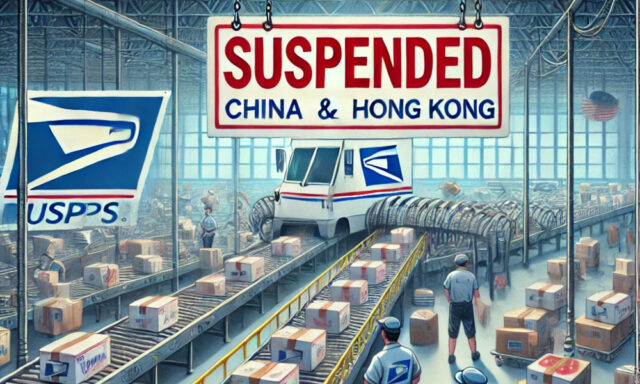HONGKONG: The US Postal Service (USPS) has suspended incoming parcels from China and Hong Kong indefinitely. This decision could significantly impact major e-commerce companies like Shein and Temu. USPS has not provided a reason for this suspension but confirmed that letters will not be affected.
Policy Changes
This announcement follows a recent executive order by US President Donald Trump. The order ended the “de minimis” exemption, which previously allowed duty-free packages under $800. The exemption allowed Chinese exporters to send products without inspections or additional costs. The suspension also coincides with a new 10% tariff on Chinese imports.
Industry Reactions
FedEx and UPS have yet to comment on the situation. DHL confirmed it continues accepting shipments from China but warned of possible delays and extra fees. “We are working with stakeholders to minimize disruptions,” a DHL spokesperson stated. Companies reliant on cheap imports are now assessing the impact of these new policies.
E-Commerce Disruptions
Shein and Temu could face significant challenges due to this policy change. Their business models depend on low-cost shipments from China to US consumers. Over a billion cheap products entered the US annually under the previous rules.
USPS Challenges
USPS must now figure out how to enforce the new tax rules effectively. Analyst Chelsey Tam noted that daily de minimis shipments reached four million in 2024. She explained that processing every package under the new tax requirements would take time. USPS will likely need new strategies before resuming Chinese parcel shipments.
Broader Impact
The de minimis exemption mainly benefited China, with nearly half of such packages coming from there. A US congressional report highlighted China’s dominance in low-value shipments. The removal of the exemption could slow imports and raise consumer prices. Experts predict further trade tensions between the US and China.
Future Uncertainty
Businesses are now adjusting their supply chains to cope with these changes. Importers and retailers fear potential delays and rising costs. Consumers may soon notice higher prices on products previously shipped duty-free. The impact of these decisions will become clearer in the coming months.











